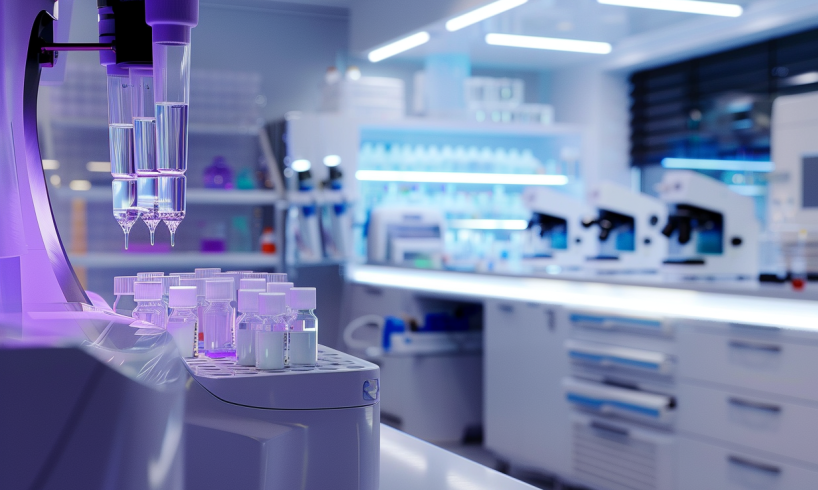Unraveling the Blood Pressure and Diabetes Mystery
An international team of researchers, led by the universities of Bristol, UK, and Auckland, New Zealand, has finally uncovered the long-standing mystery of why many…

At LeoLab™, we pride ourselves on our state-of-the-art facilities and cutting-edge technology. We employ both automated and manual peptide synthesizers, utilizing advanced solution and solid-phase peptide synthetic techniques. This allows us to produce peptides and proteins that consistently exceed 99% purity, meeting the highest standards of quality and reliability.
Our commitment to excellence extends from the initial stages of peptide synthesis all the way through to packaging and delivery. We implement stringent quality control measures at every step to ensure that our products arrive in their purest and most stable form.
In our analytical test lab, we conduct rigorous in-house testing at all stages of production. Our peptides undergo thorough verification using High-Performance Liquid Chromatography (HPLC) and Mass Spectrometry analysis. These sophisticated techniques ensure the precise accuracy, purity, and identity of each peptide, giving you the confidence that you are receiving the finest quality products available.

Join us in advancing the frontiers of science with our superior peptides and proteins.
Merges leading-edge, rapid-turnaround technology, a team of 8 PhD-level professionals, and continuous technical support to assist biotech and research facilities in achieving their most ambitious goals.
LeoLab™, established in 2018, has set up a manufacturing center in the EU. The center focuses on the production of recombinant proteins and gene synthesis, catering to academia, pharmaceutical R&D, diagnostics, and cell and gene therapy needs for the global market from Europe.
An international team of researchers, led by the universities of Bristol, UK, and Auckland, New Zealand, has finally uncovered the long-standing mystery of why many…
Scientists have pioneered a novel method for synthesizing peptides, potentially enhancing the efficiency and cost-effectiveness of drug manufacturing. Currently, over 70 peptide-based drugs are approved…
Summary: Researchers have successfully reversed Alzheimer’s symptoms in mice using a synthetic peptide known as PHDP5. This peptide targets brain function by enhancing synaptic connectivity.…
A revolutionary study published in Nature unveils a new therapy for obesity that results in greater weight loss in mice compared to current treatments. This…
Semaglutide, originally developed to treat type 2 diabetes and obesity, has shown significant improvements in symptoms for both men and women with a common, yet…
Researchers from Baylor College of Medicine, along with their partners, have identified promising new targets for cancer therapy and gained new insights into existing cancer…